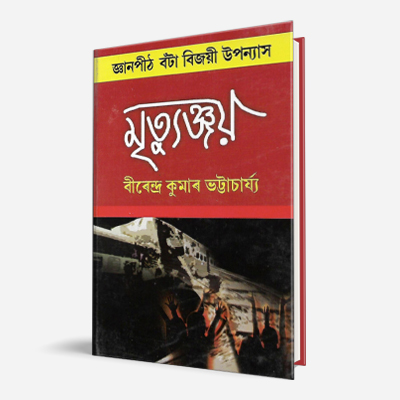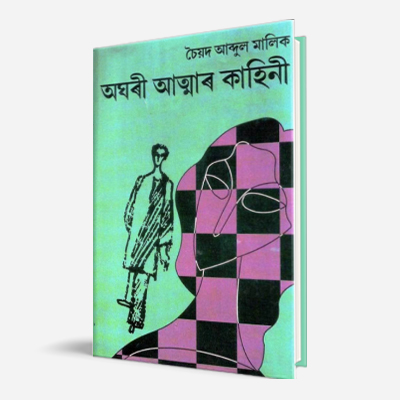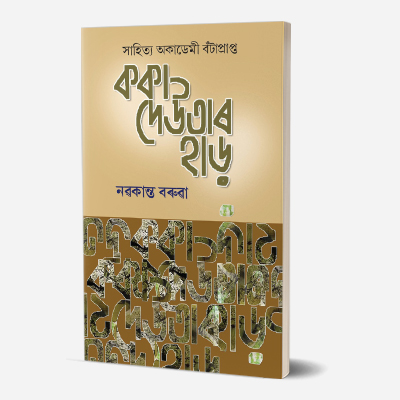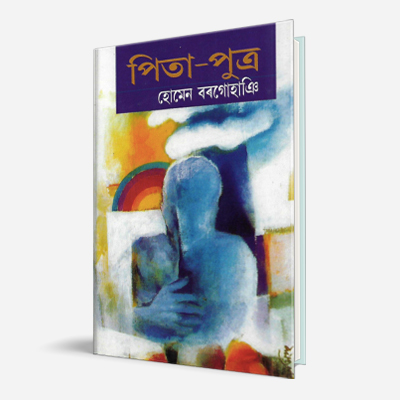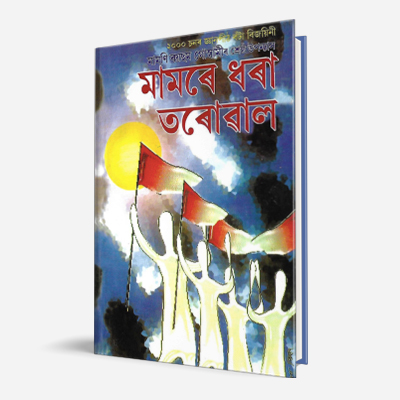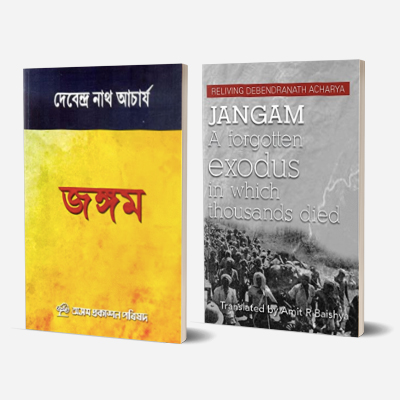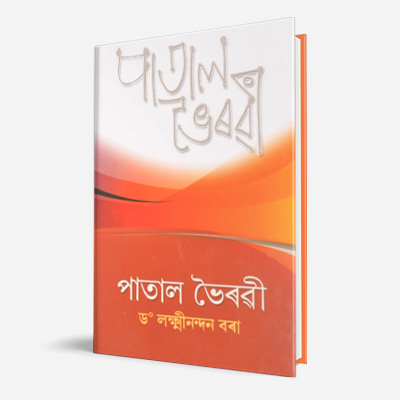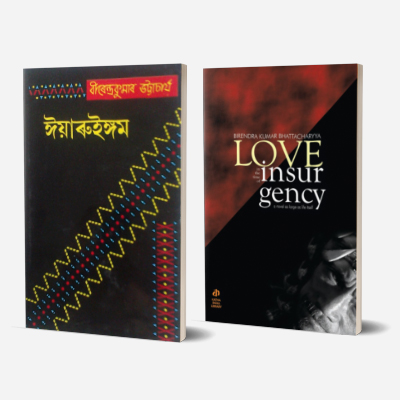Mrityunjay
By Birendra Kumar Bhattacharya
The title ‘Mrityunjay’ means Conqueror of Death or Immortal. The novel depicts a clear picture of the struggle and commitments of the Assamese society in 1942 against British rule. It narrates how Assamese people were influenced by the Quit India Movement, and how they implemented it in their state. The story is based on the Barpathar railway derailment caused by freedom fighters. It symbolizes the debates of the movement in individual Assamese freedom fighters, who go through intense internal dilemmas while determining the means they wanted to use to fight – Gandhi’s non-violent satyagraha or Bose’s violent uprising. Characteristically for Bhattacharya, the book explores these political questions through the milieu of Assamese daily life – its traditions, customs, and environment. When the book was awarded the Jnanpith Prize in 1979, its citation recognized Bhattacharya for the power of its narrative structure – “The capacity to detect the significance of the moment and endow it with the permanence and universality of art is what make Dr Bhattacharya an outstanding writer”.
About the Author
Birendra Kumar Bhattacharya (14 October 1924 – 6 August 1997) was one of the pioneers of modern Assamese literature. He was the first Assamese author to win the nation’s most prestigious literary award, the Jnanpith Award (1979). He wrote 20 novels, 6 Short stories, a 100 poems and innumerable essays and articles besides translating classics from Bengali and Assamese into English, including many of his own works. Nearly all of his novels are written with a political tone, particularly around the Independence movement and its often unrecognized by-products in peoples’ lives.
Aghari Atmar Kahini
By Syed Abdul Malik
Translated into English as The Tale of Nomadic Soul by RP Khaund (1990)
The title ‘Aghari Atmar Kahini’ translates to ‘Tale of Nomadic Souls’. And much as the title connotes, the story revolves around the minutiae of the lives of seemingly insignificant people – an unhappy couple, being visited by an old friend. In a loosely structured flow, the story explores the lives of these people: their worldviews, ambitions, personalities, marital troubles, and interactions with an expanding cast of people in their overlapping communities. Malik masterfully portrays the alienation, ennui and uneasiness of an increasingly urban, ‘modern’ life, and its complex interactions with Assamese society, language and culture. It won the Sahitya Akademi Award in 1972.
About the Author
Syed Abdul Malik (1919–2000) was one of the most widely known and popular writers in Assamese literature. In his long career, he wrote nearly fifty novels, dozens of plays, short stories, poems, travelogues and children’s fiction, was elected as the president of the Assam Sahitya Sabha (1977) and recognized nationally for his contributions – especially with the Padma Shree (1984) and Padma Bhushan (1992). His writing is known for its emphasis on love; according to Assamese critic Satyendranath Sarma, his representations of love were unique for “the variety of form and colour” it was portrayed. Today, his writings are considered to be a bridge in Assamese literature, stylistic and thematic representations of the socioeconomic and political changes Assam underwent before Independence (and the Second World War), and after it.
Koka Deutar Har
By Nabakanta Barua
The title, Koka Deutar Har, translates to ‘Ancestral Bone’ or ‘Forefather’s Fossils’. The plot of the novel traces the story of the changing lives of a village inhabited in the valley of Kolong river of Assam, and how the people there respond to and grapple with ideas of modernity, ancestry and tradition. It follows the story of two feudal lords, and brothers-in-law – the royal Bhogai Barua and the nouveau riche Bakhar Bora, and how their disputes are mediated and determined by their relationships with their ancestry, represented through their grandmother, the familial matriarch. Although the writing is infused with Barua’s poetic style, he emphasises the historical authenticity of the period – the early nineteenth century, with all its power, pride, politics, traditions, and generational continuity. In the words of Assamese critic Amrit Jyoti Mahanta, Barua, in the novel “enjoy[s] losing himself in that great motion which is cosmic, universal, and at the same time personal”. Kokadeutar Har received the Sahitya Akademi Award in 1975.
About the Author
Nabakanta Barua (1926-2002), also known as Ekhud Kokaideo, was an eminent Assamese author and poet. Barua’s contribution to Assamese art and literature came through his academic work in Cotton College, his translations of many Western and Bengali authors and poets into Assamese, his presidency of the Assam Sahitya Sabha and of course, in his vast collections of poetry, essays, novels, and children’s literature (a total of 39 books). He was recognized for these immense contributions most famously through being awarded the Padma Bhushan in 1976. Along with Amulya Barua and Hem Barua, he is considered to be one of the founders of the renaissance of modern poetry in the state.
